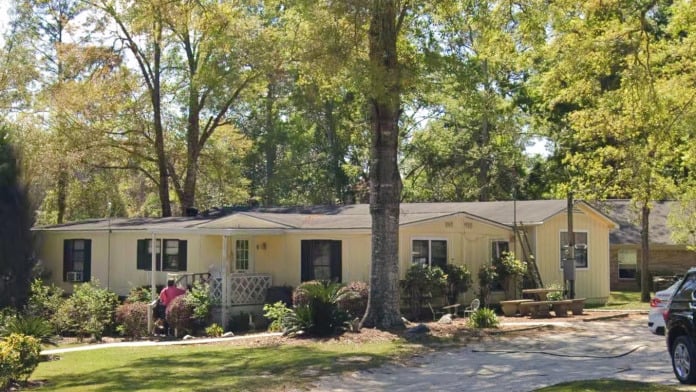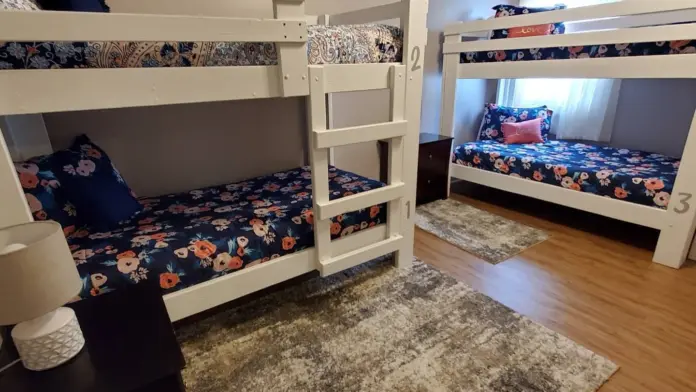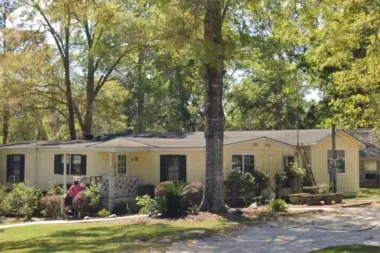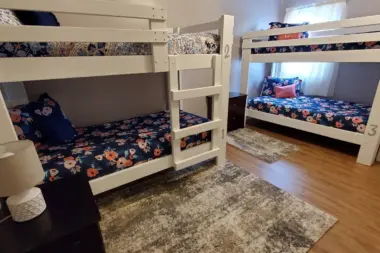This place is fantastic, I loved it !! It helped my family and me so much! The lord and his merciful hand have blessed us.
About Mission of Hope Ministries
The focus of residential treatment is to break the chains of addiction through Jesus Christ. The goal is spiritual, physical, and emotional restoration through the Gospel of Jesus. Emphasis is placed on loving God and loving people.
Situated on 40 private acres in west Mobile County, the Men’s Campus serves up to 100 men. Housing and recovery services are offered to men who are struggling with drug and alcohol addiction. Treatment focuses on developing a relationship with Jesus and finding healing through the Gospel message and biblical principles.
The Taylor House & Heritage Haus offer residential treatment for 32 women. Mothers with small children can bring their children with them to this campus.
Their Moffett Road campus is a men’s halfway home. The residence houses 11 clients, plus staff. It’s designed for men who have graduated from the recovery program and need support to transition back into the world. It offers Christian accountability and ongoing support as the men continue their recovery journeys.
They offer services free of charge. The nonprofit parachurch organization receives donations from churches, businesses, and individuals to cover the costs of treatment. As a result, anyone who needs treatment can attend free of charge. If providers need to refer you to outside resources for additional recovery services and support, those entities may be in-network with major insurance providers. Ask your individual provider to confirm your coverage because out of network benefits may vary.
Latest Reviews
Rehab Score
Gallery




Other Forms of Payment
Self-pay involves paying for treatment out of your own pocket. You can use savings or credit, get a personal loan, or receive help from family and friends to fund your treatment. If you don't have insurance or your insurance plan doesn't cover a specific program, self-pay can help ensure you still get the care you need.
Addiction Treatments
Levels of Care
Residential treatment programs are those that offer housing and meals in addition to substance abuse treatment. Rehab facilities that offer residential treatment allow patients to focus solely on recovery, in an environment totally separate from their lives. Some rehab centers specialize in short-term residential treatment (a few days to a week or two), while others solely provide treatment on a long-term basis (several weeks to months). Some offer both, and tailor treatment to the patient's individual requirements.
Treatments
The goal of treatment for alcoholism is abstinence. Those with poor social support, poor motivation, or psychiatric disorders tend to relapse within a few years of treatment. For these people, success is measured by longer periods of abstinence, reduced use of alcohol, better health, and improved social functioning. Recovery and Maintenance are usually based on 12 step programs and AA meetings.
Drug rehab in Alabama provides medical or psychotherapeutic treatment for drug dependency. Methods of treatment often include a combination of medication, counseling, and recreational therapies.
Opioid rehabs specialize in supporting those recovering from opioid addiction. They treat those suffering from addiction to illegal opioids like heroin, as well as prescription drugs like oxycodone. These centers typically combine both physical as well as mental and emotional support to help stop addiction. Physical support often includes medical detox and subsequent medical support (including medication), and mental support includes in-depth therapy to address the underlying causes of addiction.
Substance rehabs focus on helping individuals recover from substance abuse, including alcohol and drug addiction (both illegal and prescription drugs). They often include the opportunity to engage in both individual as well as group therapy.
Programs
Adult rehab programs include therapies tailored to each client's specific needs, goals, and recovery progress. They are tailored to the specific challenges adult clients may face, including family and work pressures and commitments. From inpatient and residential treatment to various levels of outpatient services, there are many options available. Some facilities also help adults work through co-occurring conditions, like anxiety, that can accompany addiction.
Young adulthood can be an exciting, yet difficult, time of transition. Individuals in their late teens to mid-20s face unique stressors related to school, jobs, families, and social circles, which can lead to a rise in substance use. Rehab centers with dedicated young adult programs will include activities and amenities that cater to this age group, with an emphasis on specialized counseling, peer socialization, and ongoing aftercare.
Clinical Services
Whether a marriage or other committed relationship, an intimate partnership is one of the most important aspects of a person's life. Drug and alcohol addiction affects both members of a couple in deep and meaningful ways, as does rehab and recovery. Couples therapy and other couples-focused treatment programs are significant parts of exploring triggers of addiction, as well as learning how to build healthy patterns to support ongoing sobriety.
Research clearly demonstrates that recovery is far more successful and sustainable when loved ones like family members participate in rehab and substance abuse treatment. Genetic factors may be at play when it comes to drug and alcohol addiction, as well as mental health issues. Family dynamics often play a critical role in addiction triggers, and if properly educated, family members can be a strong source of support when it comes to rehabilitation.
Group therapy is any therapeutic work that happens in a group (not one-on-one). There are a number of different group therapy modalities, including support groups, experiential therapy, psycho-education, and more. Group therapy involves treatment as well as processing interaction between group members.
In individual therapy, a patient meets one-on-one with a trained psychologist or counselor. Therapy is a pivotal part of effective substance abuse treatment, as it often covers root causes of addiction, including challenges faced by the patient in their social, family, and work/school life.
Amenities
-
Residential Setting
Staff
Dr. Grant McLain
Executive Director
Brandon Westcott
Assistant Director
Angela Roberts
Intake Coordinator
Julie Reed
Women’s Director
Contact Information
14970 Mission Road
Mobile, AL 36608